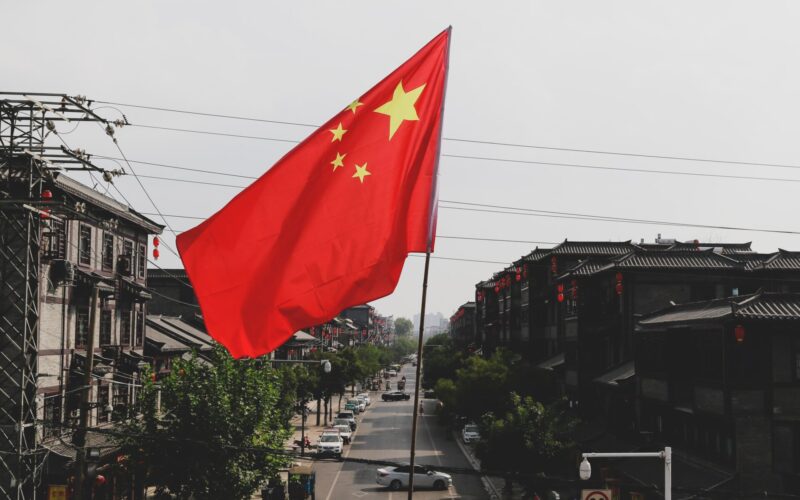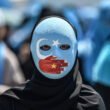The Rohingya refugee crisis is like a thorn in Bangladesh’s side. Many Bangladeshi people believe that China has the power to play a role in both creating the crisis and playing a role in resolving it.
But will China really play a role in resolving the crisis? This question is being widely discussed among geopolitical experts.
China’s recent actions and role indicate that Beijing is trying to turn the Rohingya issue into a dead issue by promising a solution. As part of this, Beijing seeks to permanently kill the Rohingya by taking time off and assimilating them into Bangladeshi society and abroad.
And Bangladesh has become so dependent on China’s development assistance that the government has no chance to raise its voice.
Although the entire international community has stood beside Bangladesh on the Rohingya issue, except for a handful of countries, but China and Russia have been providing all possible assistance to the Myanmar government, and India was utterly silent on this issue, that’s why no progress has been made in resolving the issue.
Moreover, there is some information from various sources that it seems that Bangladesh has fallen into a kind of strategic trap of Beijing. It will not only be difficult to get out, but at the same time, Bangladesh may become isolated from the world community.
This fear has been heightened by the imposition of sanctions on RAB and some top officials of the Bangladesh Security Forces.
Dhaka’s Strategic is that Bangladesh has followed a kind of equilibrium policy in foreign strategy. Although a system of cooperation has been established with China in the field of defense, Dhaka has established special relations with the United States and Western countries and OIC member states without creating animosity with anyone in the international arena. In this case, a kind of balance is maintained with India also.
In the foreign strategy that Bangladesh has been pursuing till 2007, China’s cooperation has played a significant positive role in enhancing the capabilities of the defense forces. However, despite China’s tacit support for the Burmese rulers in every effort to push the Rohingya to Bangladesh, Dhaka has never compromised.
When Ziaur Rahman was President, the first Rohingyas were massacred and pushed to Bangladesh. Colonel (retd) Oli Ahmed, a member of the cabinet, dealt with the issue during and after the government of Justice Abdus Sattar.
He recently told the media that Arakan could be separated from Burma if the Rohingyas were pushed towards Bangladesh when Myanmar’s military government at the time was not responding in any way to their repatriation. The Burmese government then turned a deaf ear to the Rohingya.
During the BNP government of Begum Khaleda Zia, Beijing proposed to the then Prime Minister to assimilate the Rohingyas in Bangladesh in exchange for substantial economic and development assistance. An adviser to Begum Zia then referred to the proposal, saying Prime Minister Khaleda Zia had not agreed.
The Taiwan issue is generally cited as the main reason for the distance between the BNP government and China. Still, according to a reliable source, Beijing did not naturally accept China’s refusal to accept the Rohingya and angered the Chinese leadership.
During the next government, especially during the post-2014 government in Bangladesh, the Rohingyas turned to Bangladesh. The government of Bangladesh at that time opened the door for the Rohingyas for humanitarian reasons. The international community generously appreciates this humane approach of Bangladesh.
But some geopolitical strategists could not accept Dhaka’s new policy as far-sighted. According to them, under the guise of humanity, Myanmar has been given the opportunity to liberate the Rakhine region from the Rohingya.
In Bangladesh, the government is widely believed to have won the favor of neighboring countries in the January 2014 unilateral elections. Still, in the 2018 elections, after the Rohingya were accepted in Bangladesh, the government received significant support from China for extending its term by five years. Earlier in 2016, Chinese leader Xi Jinping visited Bangladesh. The Chinese President promised to invest 24 billion in Bangladesh at that time.
Three significant events took place after the Chinese President visited Bangladesh. Large-scale Chinese investment continues to come in large projects in Bangladesh. After the participation of all the opposition parties in the 2016 elections, the Awami League once again formed the government in the elections known as night voting except for a few seats in Hategona. The Chinese Ambassador to Dhaka congratulated the first gold boat after the formation of the government.
After that, the political slogan of the ruling party, ‘Joy Bangla,’ started ringing in the ceremonies of the Chinese embassy. Establishing relations with the party rather than the state prevails in Chinese foreign policy.
A careful analysis of every step taken by China in this regard after the Rohingyas were pushed to Bangladesh in 2016 will reveal two issues.
The first is to arrange for the Rohingya to return to Rakhine at any time. Secondly, to make arrangements for permanent migration or assimilation of Rohingyas in Bangladesh. At the same time trying to rehabilitate them in Muslim countries or anywhere else. Third, move the displaced Rohingya as far away from the Myanmar border as possible. But not to rehabilitate them in the hill districts in any way.
When the Rohingyas were first pushed into Bangladesh during Ziaur Rahman’s rule in Bangladesh, they were turned away by the Burmese rulers in the face of threats from the Rohingya resistance movement and efforts to liberate Arakan. Burmese-Chinese strategists believe that such a resistance movement would not be possible if the Rohingya could be pushed away from the border.
It is thought that this may be due to the relocation of Rohingyas to Bhasanchar, a remote island in Noakhali. It is learned that more islands are being considered for the rehabilitation of Rohingyas outside Bhasanchar. It is unknown what he will do after leaving the post.
However, a source said that the cost is being borne directly or indirectly by Beijing. Although the Rohingyas do not want to go to Bhasanchar, the whole process of taking them there is said to be due to Chinese pressure. Many feel that the financial assistance provided by the United Nations and donor countries to the Rohingya did not go unnoticed by the Bhasanchar plan.
Although he later agreed to work in Bhasanchar, the West is finding China’s strategic motive behind the initiative. As a result, a kind of anxiety has been created among them.
Subscribe to our channels on WhatsApp, Google News, Facebook and Instagram.Discover more from The Islamic Information
Subscribe to get the latest posts sent to your email.












